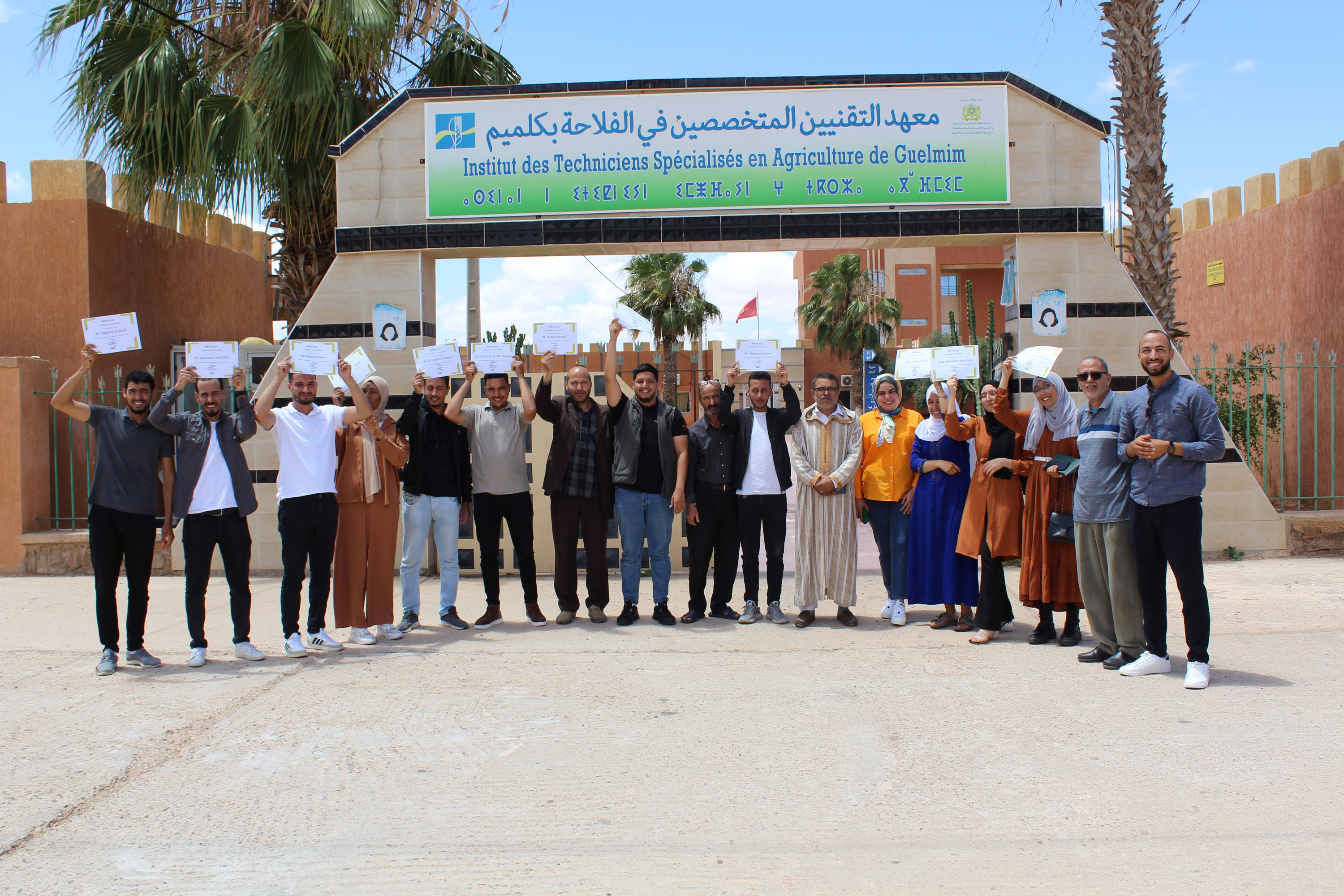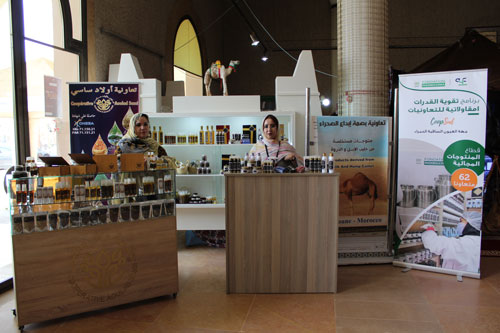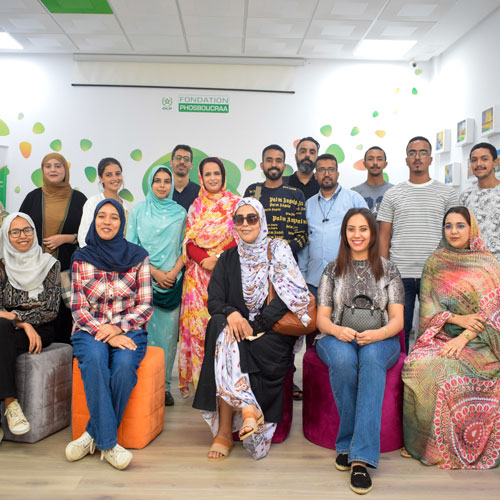TRAINING FOR SPORTS MANAGER ASSISTANT AND SOCIO-CULTURAL ANIMATOR
DEVELOPING SKILLS FOR A PROMISING FUTURE
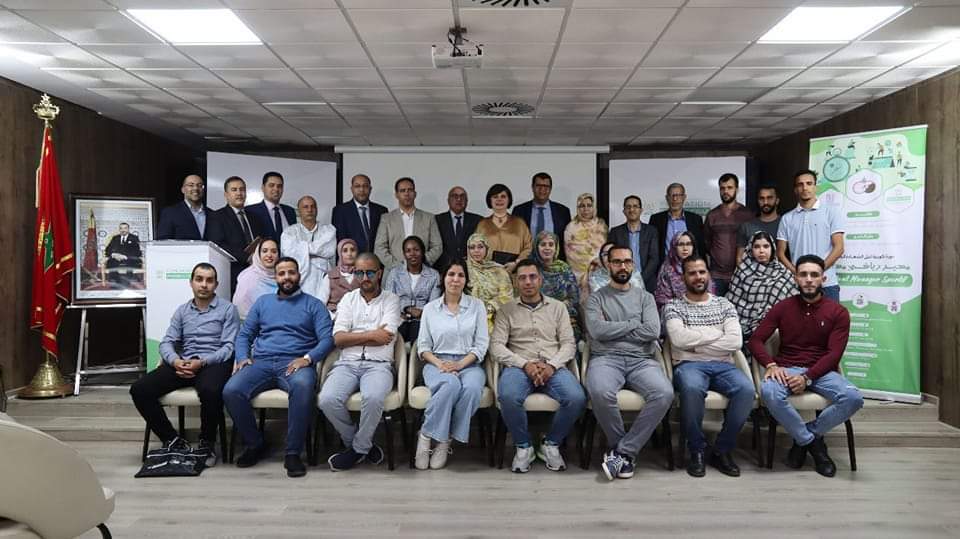
The Phosboucraa Foundation has initiated a training project aimed at certifying assistant sports managers and socio-cultural facilitators. This initiative is part of the Foundation's mission to develop the skills of young people and encourage entrepreneurship. By focusing on the field of animation, supervision and management of sports structures, this project aims to meet the growing needs for qualified professionals in the Southern Regions of Morocco, in particular Laayoune -Sakia El Hamra.
The Assistant Sports Manager and Socio-Cultural Facilitator training projects aim to develop the skills of young people in the region of Laayoune -Sakia El Hamra. By training and certifying 20 young people as socio-cultural facilitators and 20 young people as assistant sports managers, the project contributes to the creation of employment and entrepreneurship opportunities in the field of sports animation and sociocultural. By strengthening management, supervision and animation capacities, participants will be able to contribute significantly to the development of the region's sporting and socio-cultural offerings.
A partnership and inclusive approach
To carry out these training projects, the Phosboucraa Foundation has joined forces with the Royal Moroccan Federation of Aerobic Sports, Fitness, Hip Hop and Assimilated Disciplines (FRMSAFH) as well as the Aljisr Association. These partners bring their expertise and experience in the fields of sports and socio-cultural activities, thus ensuring quality training adapted to market needs. The training will be delivered in 2023 and will provide young participants with practical knowledge and skills to successfully practice their profession.
Impact of the project on the territory and local communities
The project aims to strengthen the skills of players in the region's sporting and socio-cultural sectors. The young people trained will be able to contribute to the development of a range of quality services, thus promoting the engagement of citizens in enriching sporting and socio-cultural activities. This will have a positive impact on the health, well-being and personal development of individuals, as well as on the economic dynamism of the region.
20 young people selected for the training of socio-cultural facilitators in the region of Laayoune Sakia El Hamra.
20 young people selected for the training of assistant sports managers in the region of Laayoune -Sakia El Hamra.
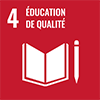
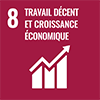
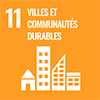
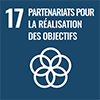
The Sports Assistant Manager and Socio-Cultural Facilitator training projects are linked to the United Nations Sustainable Development Goals (SDGs):
SDG 4 - Quality education: Training young people as socio-cultural facilitators and assistant sports managers provides them with essential skills and knowledge for their personal and professional development. This promotes access to quality education and encourages lifelong learning.
SDG 8 - Decent work and economic growth: By training young people in professions linked to sports and socio-cultural activities, the projects create opportunities for decent employment and economic development in the region of Laayoune -Sakia El Hamra. Certified young people will be able to contribute to economic growth by offering professional services and stimulating entrepreneurial activity.
SDG 11 - Sustainable cities and communities: By strengthening the region's sporting and socio-cultural infrastructure, the projects contribute to the creation of sustainable communities. Activities led by certified young people will promote social cohesion, community well-being and the creation of inclusive public spaces.
SDG 17 - Partnerships for the achievement of the objectives: The training project is carried out thanks to a partnership between Phosboucraa Foundation, the Royal Moroccan Federation of Aerobic Sports, Fitness, Hip Hop and Assimilated Disciplines (FRMSAFH) and the Aljisr Association. These partnerships demonstrate the importance of collaborations and cooperation to achieve sustainable development goals.
